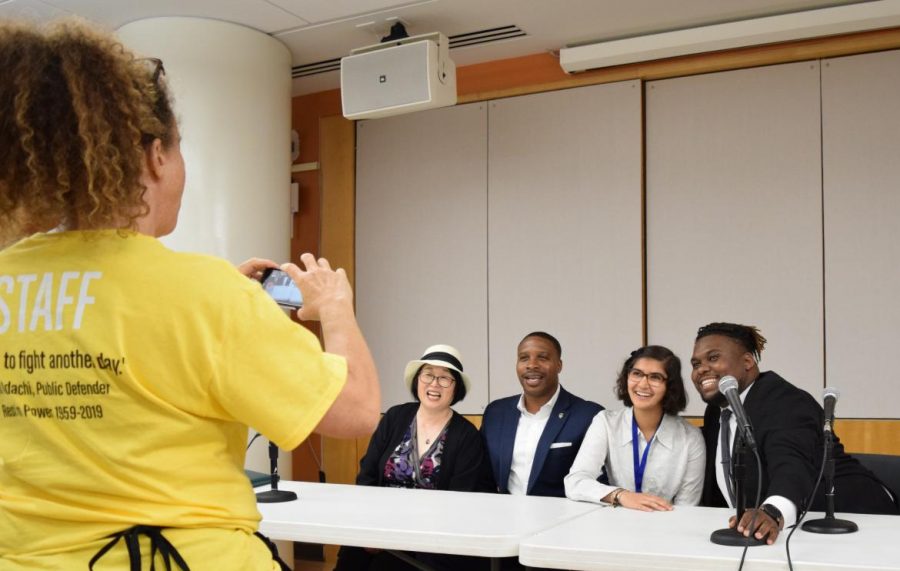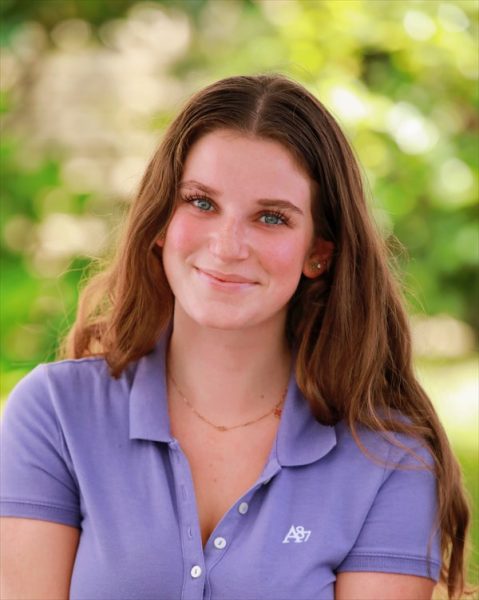Voters consider legislation to lower local voting age
Proposition G could give 16 and 17 year olds the right to vote
Kiely Hosmon | with permission
Vote16SF youth campaign leader and legislative co-author, Arianna Nassiri (’20) poses with other speakers on Youth Advocacy Day. Vote-16 will be appearing on the San Francisco ballot as Proposition G and will allow teens to start voting at 16 on city issues.
October 1, 2020
San Francisco voters will have a chance to give young people a voice in politics with Proposition G, or Vote16SF, which would allow 16 and 17 year olds to vote in local elections.
“Local political decisions have a great influence on the lives of 16 and 17 year olds through school funding, jobs, the parks, public transportation, and just so many other things,” Valentina Alioto-Pier, a San Francisco Youth Commissioner who advocates independently for Vote16SF, said. “Things can change so fast and the future that laws set in place can have a huge impact on the future of youth, we could be living with them for the rest of our lives.”
A common concern is that teenagers may vote the same as their parents do with no further research, according to sophomore Amaliya Sypult.
“If I got the chance to vote I would but at the same time I know that not everyone, myself included, knows a ton about local politics,” Sypult said. “I just don’t know if everyone would look into ballot measures. If I was in charge of this, I don’t know if I would let teens have a say.”
While some teens have their doubts about the intentions and turn out of their peers, many want a chance for their voices to be heard, according to junior Sarah Startz.
“A lot of my friends are very active on Instagram, and they’ve been contributing a lot to petitions online,” Startz said. “I think if they had the chance to go from Instagram to taking action by voting they would, as would I.”
A similar ballot failed to pass in 2016, losing with 48% of voters in favor. Board of Supervisors President Norman Yee says he thinks the measure is likely to pass this time around.
“It started gaining traction and with another month, it likely would’ve won,” Yee wrote in an email. “Now, it’s not a new issue and we’ve seen how many of the current movements have been visibly led by our youth, it’s time to let their voice be heard officially.”
Some advocates argue that allowing young people to vote will build good habits when it comes to being prepared to vote and voting routines according to Alioto-Pier.
“Studies show if we start voting at 16, we are much more likely to vote when we are adults, which is good for the future of our democracy,” Alioto-Pier said. “Voting is habitual. Once someone casts their first vote, they will continue voting. The earlier someone starts to vote, the more likely they are to become lifelong voters.”











JbReiskin • Nov 1, 2020 at 2:33 pm
Wonderful and thoughtful article..well done.